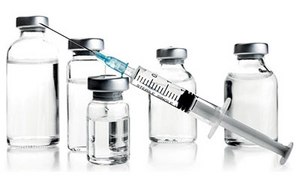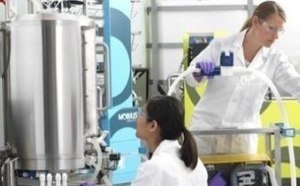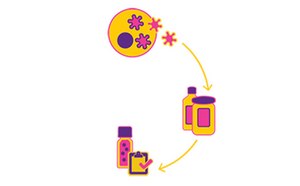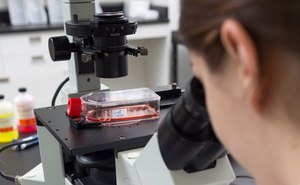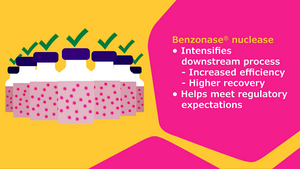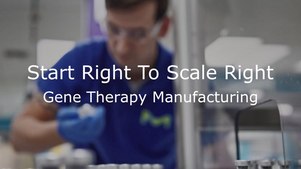Viral Vector Upstream Processing

Optimizing the upstream portion of the gene therapy production workflow sets the stage for successful manufacturing by maximizing viral vector titers. Without the benefit of a proven template, however, process development teams must evaluate all aspects of viral vector production including:
- Raw and starting materials
- Cell culture media
- Conditions for cell and virus growth, clarification, and nucleic acid digestion
To minimize variability and risk across these process inputs, gene therapy manufacturers can collaborate with an experienced technology partner with expertise in all aspects of viral vector production as well as related products and services.
Featured Categories
Process chemicals are key components for biopharmaceutical...
Our off-the-shelf and customizable bioprocessing cell culture media (CCM) products enhance productivity in upstream mAb, vaccine, gene/cell therapy processes.
A transfection-based solution to viral vector production using a suspension cell line, chemically defined medium, and a process with proven performance at scale.
Our ready-to-use, off-the-shelf cell line systems greatly reduce the time, cost, and risk of developing new cell lines for production. Whether you are producing antibodies, recombinant proteins, vaccines or viral vectors for gene therapies, our cell line platforms can accelerate your upstream progress.
Workflow

Viral Vector Downstream Processing
Efficient virus purification processes can improve yield, decrease time to patient, and lower manufacturing costs
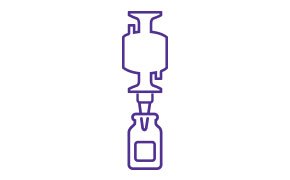
Viral Vector Formulation and Final Fill
Formulating a commercially viable gene therapy demands a high level of application and regulatory expertise

Viral Vector Characterization and Biosafety Testing
Critical biosafety testing and characterization of viral vector products can help mitigate safety concerns and increase product understanding
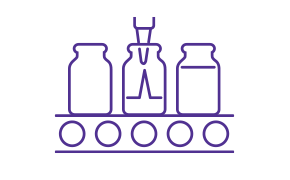
Viral Vector Contract Development and Manufacturing
CDMO partnerships play a critical role in advancing clinical pipelines and achieving successful commercialization
Thaw and Expand Cells and Seeds
Frozen cells from a working or master cell bank are thawed and expanded to increase their numbers in preparation for subsequent processing steps.
Media and Inoculum Prep
Cell culture media are optimized with the appropriate nutrients, supplements, and pH for cell growth and virus production.
Cell Growth and Virus Production
Cells are grown in a bioreactor or other controlled environment under specific conditions to maximize virus production.
Cell Lysis
In AAV production, host cells are lysed by chemical or mechanical means so that the viruses can be released into the media.
DNA Digestion
Unwanted whole cell and plasmid DNA is digested using a nuclease enzyme.
Visit our document search for data sheets, certificates and technical documentation.
Related Articles
- See how the Sf9 rhabdovirus-free cell line was developed and how we’ve developed a companion chemically-defined insect cell media for protein and viral expression.
- Scaling up viral vector production using adherent cell culture systems is challenging. Learn how suspension cell culture systems benefit large-scale bioprocessing.
- A step-by-step overview of suspension-based, transient transfection bioreactor process development and scaleup of lentivirus production.
- To address scalability challenges of AAV manufacturing, we developed an HEK293 suspension cell line that can be used across many serotypes. Get the data in this article.
- Read our white paper on the development of a novel cell culture medium for AAV production with multiple HEK293 lineages and process optimization.
- See All (10)
Related Documents
- Product Guide: Upstream Chemicals for Bioprocessing
We offer a broad portfolio of raw materials and chemical components suitable for cell culture media formulations and upstream applications used in biopharmaceutical production.
- White Paper: Application of the Sf-Rhabdovirus-Negative (Sf-RVN®) Platform for AAV Production
The Sf-RVN® Platform is a two-part system comprising a proven Sf-9 cell line devoid of Sf-rhabdovirus (the Sf-RVN® cell line) and a chemically defined medium engineered for the cell line, the EX-CELL® CD Insect Cell Medium.
- Brochure: Gene Therapy Capabilities for AAV and Lentivirus Production
Our products and services for AAV, Lentivirus and other viral vectors provide solutions to your most challenging pain points around process development, speed, manufacturing and regulatory guidelines.
- Transcript: Exploring the Potential of Insect Cell Lines for Efficient AAV Production
Interview transcript with GTRI and their findings of using the Sf-RVN® Platform.
Related Videos
Benzonase® nuclease efficiently digests DNA and RNA into fragments smaller than 5 base pairs.
From scale-up to overcoming regulatory hurdles and zipping through production.
Successfully scale your gene therapy production by implementing a platform process from the start.
For improving the safety profile of your gene therapy and vaccines.
Related Webinars
The production of AAV viral vectors for gene therapy comes with unique upstream challenges. Learn how our HEK platform can solve these challenges.
How Can We Help
In case of any questions, please submit a customer support request
or talk to our customer service team:
Email custserv@sial.com
or call +1 (800) 244-1173
Additional Support
- Calculators & Apps
Web Toolbox - science research tools and resources for analytical chemistry, life science, chemical synthesis and materials science.
- Customer Support Request
Customer support including help with orders, products, accounts, and website technical issues.
- FAQ
Explore our Frequently Asked Questions for answers to commonly asked questions about our products and services.
To continue reading please sign in or create an account.
Don't Have An Account?